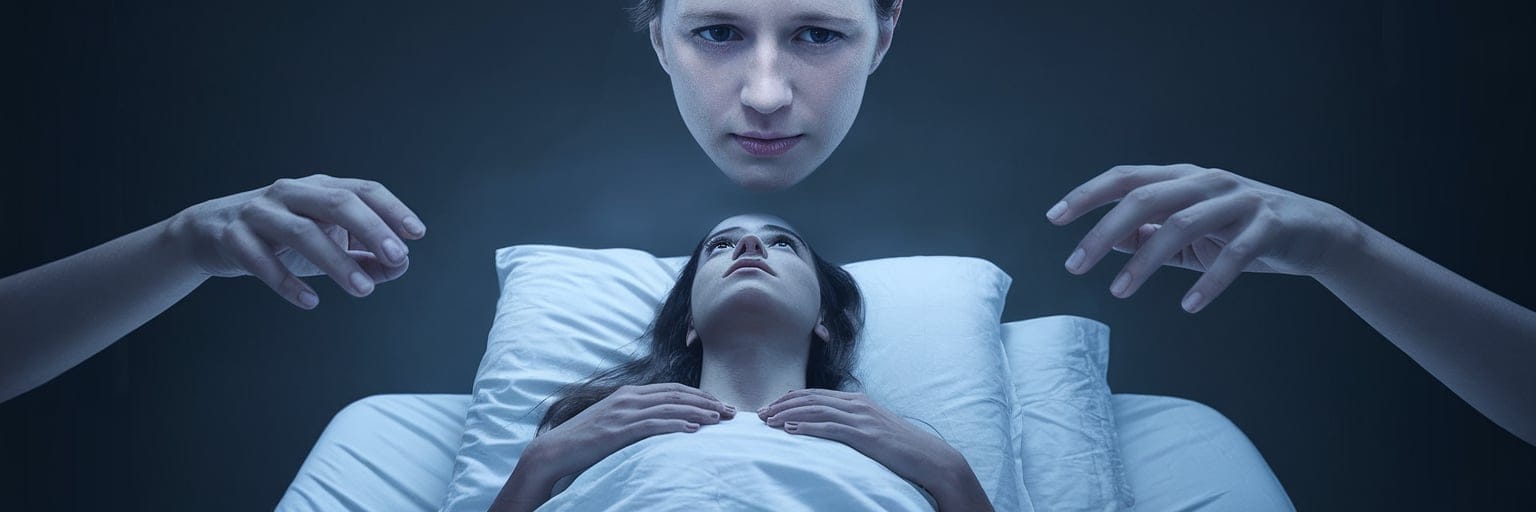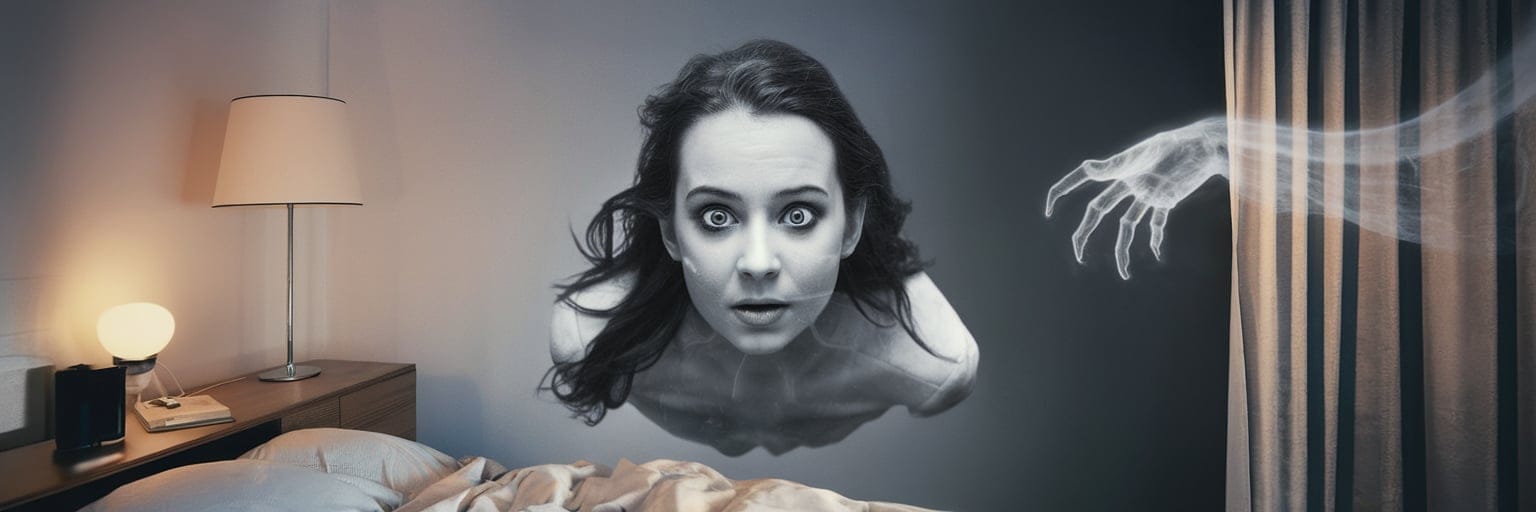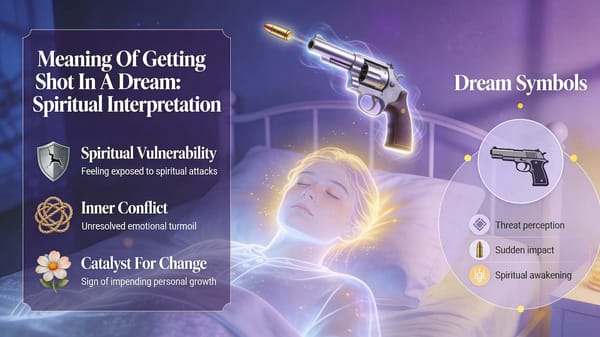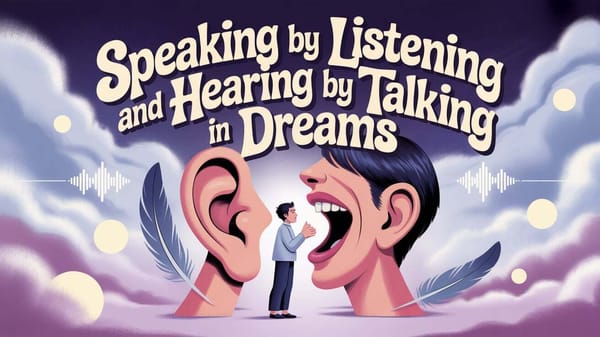Sleep Paralysis: Causes, Symptoms, and Treatment

Imagine lying in bed, wide awake yet unable to move, trapped within the confines of your own mind and body. You attempt to cry out, but no sound escapes your lips. Sleep paralysis, a surreal yet terrifying phenomenon, has inspired myths and petrified dreamers throughout history. The experience transcends culture and time, leaving those who endure it with unforgettable memories of powerlessness and awe.
Sleep paralysis is more than just a mere sleep disorder; it's an enigma buried deep within the tapestry of human experience. Such dreams are often seen as a bridge between the conscious and subconscious realms, imbued with mystical and spiritual meaning. Across cultures, experiencing sleep paralysis in dreams has been attributed to supernatural forces, spiritual awakenings, and even divine intervention.
What Do They Really Mean? Let’s Explore the Symbolic, Psychological, and Scientific Interpretations of This Intriguing Dream
Sleep paralysis is a multi-faceted experience, often invoking feelings of dread and introspection. Its symbolism can be profound, reflecting our inner battles, desires, and quests for autonomy. To fully grasp its essence, we delve into a multi-disciplinary analysis to uncover the truths veiled by our subconscious.

The Symbolic and Spiritual Significance of Experiencing Sleep Paralysis
Dreams of sleep paralysis can symbolize moments in our lives where we feel stagnant or hindered, indicating a struggle for independence. They can be interpreted as a call to harness our inner strength and embrace transformative change. The inability to move or speak might reflect our real-life experiences of feeling voiceless or restrained, urging us to pursue personal freedom.
In a spiritual context, such dreams might signify a heightening of intuition, guiding the dreamer toward deeper self-awareness and understanding. Sleep paralysis can act as a mystical threshold, where the tangible and intangible converge, offering glimpses into the subconscious.

What Do Different Sleep Paralysis Scenarios Mean?
- Struggling Against a Dark Presence: Often, individuals report sensing an ominous entity in the room. This could symbolize external pressures or unresolved fears haunting the dreamer’s waking life. It may represent a need to confront and release these fears.
- Temporary Loss of Speech: The inability to cry for help might reflect feelings of helplessness or frustration in relationships or careers, suggesting a need for self-expression and assertion.
- Sudden Onset of Paralysis: For those experiencing abrupt sleep paralysis, it might indicate sudden changes or challenges in life. This scenario can urge the dreamer to prepare for and adapt to unforeseen circumstances.
Psychological Interpretations of Experiencing Sleep Paralysis
From a psychological standpoint, sleep paralysis can be understood through various lenses:
- Freudian Analysis: Sigmund Freud might suggest that sleep paralysis represents repressed desires or conflicts, with the paralysis symbolizing the ego’s suppression of primal instincts.
- Jungian Perspective: Carl Jung could interpret the paralysis as an expression of the shadow self—parts of the psyche that one is reluctant to acknowledge. It asks the dreamer to integrate these aspects into their conscious identity.
- Reiki Insight: In Reiki, such dreams might indicate an energy imbalance, with blocked chakras causing the feeling of being ‘stuck’. This invites the dreamer to engage in spiritual healing and realignment.

Common Causes and Factors Behind Experiencing Sleep Paralysis
Several factors may trigger sleep paralysis dreams, including:
- Stress and Anxiety: High levels of stress can disrupt sleep cycles, leading to episodes of sleep paralysis.
- Life Transitions: Major life changes, like moving to a new city or starting a new job, may provoke these dreams as the subconscious grapples with adaptation.
- Health Anxieties: Concerns about physical health can manifest as paralysis in dreams, as the body responds to perceived threats.
- Emotional Turmoil: Feelings of loss, jealousy, or unresolved conflicts may emerge as paralyzing dreams, necessitating emotional processing and healing.
Scientific Explanations for Experiencing Sleep Paralysis in Dreams
From a scientific perspective, sleep paralysis occurs when the body transitions between sleep stages, specifically REM (rapid eye movement) and wakefulness. During REM sleep, the body is naturally paralyzed to prevent acting out dreams. If the mind awakens before the body, one might experience paralysis.
- Neurological Factors: Certain neural pathways may cause disruptions, leading to the sensation of paralysis.
- Genetic Predispositions: Family history and genetic markers may increase susceptibility to sleep paralysis.
- Sleep Deprivation: Irregular sleep patterns or lack of rest can amplify the likelihood of experiencing these startling events.
Coping Strategies for Experiencing Sleep Paralysis in Dreams
To mitigate the effects and frequency of sleep paralysis, consider these strategies:
- Maintain a Regular Sleep Schedule: Consistency in sleep patterns encourages a balanced and restful cycle.
- Create a Relaxing Bedtime Routine: Activities such as meditation, reading, or gentle yoga can calm the mind and reduce stress.
- Keep a Dream Journal: Documenting dreams can help identify patterns and triggers, offering insight and relief.
- Seek Professional Support: If dreams persist or disrupt daily life, consulting a therapist or sleep specialist can provide strategies and solutions.
Summary & Final Thoughts: Reflect on Your Dreams and Consider Their Possible Meanings
Sleep paralysis, with its blend of mysticism and reality, serves as a mirror to our inner world. Reflecting on such dreams can illuminate hidden truths and guide us toward personal growth. As you ponder these experiences, consider what your subconscious might be telling you. Whether through symbolic interpretation, psychological insight, or scientific understanding, the veil of sleep paralysis dreams can transform from a source of fear to enlightenment. Embrace the journey within, allowing your dreams to reveal the untold stories of your waking life.
FAQ: Decoding the Phenomenon of Sleep Paralysis in Dreams
What is sleep paralysis, and why does it occur?
Sleep paralysis is a temporary inability to move or speak when falling asleep or waking up. It’s caused by interrupted transitions between sleep stages, particularly when the body inhibits muscle activity during REM sleep while the mind becomes conscious.
What is the symbolic significance of experiencing sleep paralysis in dreams?
Symbolically, sleep paralysis may indicate feelings of constraint or helplessness. Might suggest a struggle for independence or a need for personal power.
How is sleep paralysis viewed in spiritual or mystical contexts?
In spiritual or mystical contexts, sleep paralysis could be interpreted as a crossing point between physical and spiritual realms, possibly connected to heightened intuition or inner wisdom.
What does it mean if I encounter a dark presence during sleep paralysis?
Encountering a dark presence often symbolizes unresolved fears or deep-rooted anxieties. Such experiences can urge exploration and confrontation of personal fears, potentially fostering growth and resilience.
How can temporary loss of speech during sleep paralysis be interpreted?
Temporary loss of speech during sleep paralysis might reflect feelings of frustration or helplessness in waking life. This could highlight a need for effective self-expression and assertiveness.
What might trigger sleep paralysis experiences?
Sleep paralysis can be triggered by high stress levels, irregular sleep schedules, certain medications, or mental health conditions. Major life transitions and unresolved emotional conflicts might also contribute to sleep paralysis episodes.
What are some psychological interpretations of sleep paralysis?
- Freudian Perspective: Freud might suggest sleep paralysis represents repressed fears or conflicts.
- Jungian Perspective: Jung could interpret it as an encounter with the shadow self, hinting at a self-realization process.
- Reiki/Energy View: In energy healing, sleep paralysis could signal blocked energy pathways or imbalances in the dreamer's energy field.
Are there scientific explanations for sleep paralysis?
Yes, sleep paralysis is linked to the transitions between REM sleep and wakefulness. It often occurs due to sleep deprivation, irregular sleep schedules, or specific sleep disorders. Neurological and genetic factors might also play a role.
What strategies can help cope with sleep paralysis in dreams?
Managing sleep paralysis can involve maintaining a consistent sleep schedule, adopting relaxation techniques before bed, keeping a dream journal for reflective analysis, and seeking professional support if needed.
How can reflecting on sleep paralysis dreams contribute to personal growth?
Although they can be unsettling, sleep paralysis episodes can provide insights into personal fears, anxieties, and internal conflicts. Reflecting on these experiences can foster self-understanding and emotional resilience, turning potential sources of fear into wellsprings of inner growth.




